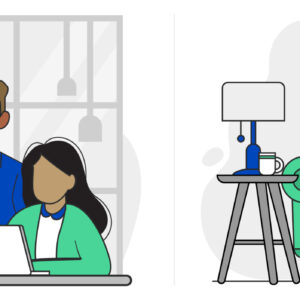What Is Java?
Last Updated on March 13, 2019 by hilary bird
If you’ve used a computer for any amount of time over the past few decades, you have likely seen notices or pop-ups about Java updates and patches. But do you know what those prompts are referring to? This article will take a closer look at the basics of Java in both web design and everyday tech interaction.
What Is Java?
Java is both a computing platform and programming language that has been used since 1995. It was designed to make websites compatible and multi-functional across different browsers and devices. While Java did see a dip in popularity as a programming language a few years back, recent updates have helped boost its popularity once again.
Keep in mind that Java is different from JavaScript, which is a scripting language used to add interactive functions to a website. Java applets require software or plug-ins to function, whereas most browsers are capable of reading JavaScript without any additional support.
Do I Have to Have Java on My Website?
If you have a website, the programming languages you use will depend a lot on what you want to do. Java or Python will allow you to build out applets, while languages like JavaScript can be used to optimize user experience on a website or form. Each of these languages can improve the interactive features of your website, but they’re not the only options out there.
 Do keep in mind that Java is an object-oriented programming language that requires software known as a “virtual machine” to be read and interpreted. Because most desktop browsers don’t yet natively read Java, users who don’t have the proper Java software installed may not be able to interact with the Java portions of your site. Further, users can disable ancillary software and functions — including those that involve Java and JavaScript — from their browsers, which means any applications that use those languages may also be disabled.
Do keep in mind that Java is an object-oriented programming language that requires software known as a “virtual machine” to be read and interpreted. Because most desktop browsers don’t yet natively read Java, users who don’t have the proper Java software installed may not be able to interact with the Java portions of your site. Further, users can disable ancillary software and functions — including those that involve Java and JavaScript — from their browsers, which means any applications that use those languages may also be disabled.
Whichever language you choose, it’s a good idea to use programmed site enhancements to improve the user experience rather than to provide basic functionality. That way, users with proper software enabled will have a good experience, but users who have disabled access will still be able to navigate your site.
Where Can I Find Java Programmers?
Finding a good Java programmer can be tricky, but it is doable. Sites like Upwork and Toptal, for example, are great avenues for finding freelance developers. Programmers simply set up site profiles that feature their skills, experience, and the kinds of work for which they are available, and you can pick the one with the resume that best meets your needs. Also, you can take advantages of various guides to Java interview questions which, even though designed for programmers as interview practice, can help a lot for the recruiters when interviewing freelance developers.
Another good place to find Java programmers is through training programs and schools that teach Java. Most schools have job boards where you can post your job and get in touch with qualified programmers.
Is Java Easy to Learn?
For people who are interested in programming, Java is a great place to start. It offers a solid foundation on which to build and grow as a programmer, and it shares some notable commonalities with C and C++ languages.
Java is also widely used, meaning it has a lot of potential application. Everything from computer programs to Android apps make use of the Java language, so taking the time to learn Java can open a lot of doors to future employment.
While Java may seem like a more technical coding language, there are plenty of online tutorials and other learning materials to guide you through the essentials. Websites like Udemy and Codecademy let you jump in start working with Java immediately.
Is Java Safe?
Java as a language isn’t more or less secure than any other programming language. However, there are some security concerns involved with the Java platform’s software and plug-ins. As with any application or software, the best way to ensure security is to make sure you are running the most current version. Updates are developed regularly to patch security breaches and fix other bugs and issues that may make the program — and your computer — vulnerable.
Even with patches and fixes, however, Java has come under scrutiny recently for failing to fully repair some security issues. To answer the ongoing threat of security vulnerability, Java’s parent company, Oracle, has announced that the next major version of Java will no longer plug directly into the user’s web browser — a huge step in making Java software safer. Until that version is released, however, you’ll want to carefully assess whether the Java plug-in is necessary for your daily web browsing. If most sites you visit don’t use Java applications, you’re probably okay to disable or uninstall the plug-in.
To fully appreciate the impact of the Java language and platform, make sure you’re surfing the Internet with the security and speeds you need. Call 855-640-4510 to learn more about CenturyLink® High-Speed Internet plans and CenturyLink bundle options today.







